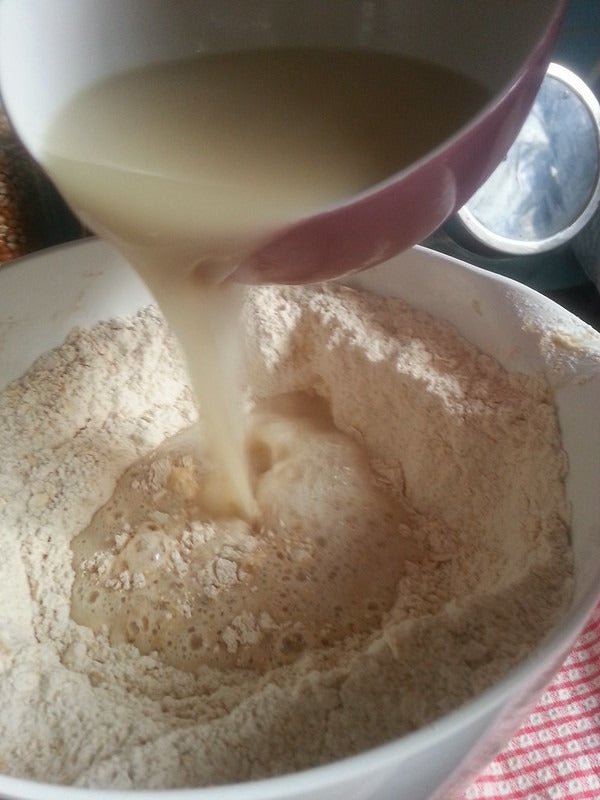Your Cart is Empty
FREE Worldwide Shipping! | +1 365 654 6605
FREE Worldwide Shipping! | +1 365 654 6605
November 02, 2023 4 min read

Baker's yeast, scientifically known as Saccharomyces cerevisiae, is a single-celled fungus that plays a crucial role in baking bread and other bakery products. It serves as a leavening agent, causing the dough to rise and become lighter and softer. This remarkable organism has a long history and is widely used in research, making it a subject of great interest. In this article, we will explore the captivating world of baker's yeast, its origins, its use in baking, and its significance in scientific studies.
Yeast, including baker's yeast, is a type of fungus that grows as a single cell. While each yeast organism consists of only one cell, yeast cells can live together in multicellular colonies. They reproduce through a process called budding, where a "mother cell" grows a protrusion known as a "bud" that eventually becomes a separate "daughter cell." This unique reproductive process allows yeast to multiply rapidly. In nature, yeast can be found in various places, such as tree sap, grape skins, and fallen fruits. They are particularly abundant in environments where there is decaying organic matter, as yeast thrives on sugar. Yeast plays a vital role in the process of decay, breaking down plant material and aiding in the recycling of nutrients. When it comes to baking, baker's yeast is an essential ingredient. It feeds on the sugars present in the dough and produces carbon dioxide and ethanol as byproducts. The carbon dioxide forms bubbles, causing the dough to rise and create a light and airy texture in the finished product. The ethanol evaporates during baking, leaving behind the distinct flavor of freshly baked bread. To ensure optimal yeast growth and fermentation, bakers often provide yeast with suitable conditions. Yeast thrives at temperatures around 85 degrees Fahrenheit, which is why it is common for bakers to keep their dough in a warm environment during the rising process. Additionally, yeast requires a source of food, such as sugar or carbohydrates, to sustain its growth. However, excessive amounts of sugar can dehydrate the yeast and hinder its activity. Salt and fat can also affect yeast growth. While salt inhibits yeast fermentation to some extent, fats like butter and eggs can slow down yeast growth. The precise impact of fat on dough is still a topic of debate among experts, with some suggesting that small amounts of fat can enhance the volume of baked bread. Beyond its role in baking, baker's yeast is a valuable model organism for scientific research. Its ease of cultivation, rapid growth, and well-studied genetics make it an ideal candidate for studying various biological processes. Researchers can manipulate the genetic material of baker's yeast to investigate how certain genes are switched on or off in response to stress. They can also study mRNA translation, the process by which cells produce proteins. The knowledge gained from studying baker's yeast can extend beyond understanding the biology of this specific organism. It can provide insights into cellular processes in other species, including disease-causing yeasts and even humans. Baker's yeast serves as a foundation for research, allowing scientists to establish a baseline understanding of biological mechanisms before exploring similar processes in more complex organisms. For those who enjoy baking or brewing, understanding the characteristics of baker's yeast can greatly enhance the quality of their creations. Here are some tips to consider: Temperature Matters: Maintaining the right temperature during fermentation is crucial for yeast activity. Yeast thrives at around 85 degrees Fahrenheit, so keeping the dough at a warm temperature is essential for optimal growth. Finding the Right Yeast: Different strains of yeast can have varying tolerances for alcohol levels. When making beverages like wine or beer, selecting a yeast strain that can tolerate higher alcohol content is important to ensure fermentation completes successfully. Time and Environment: Giving yeast enough time and creating a suitable environment are key factors for successful fermentation. Yeast requires a warm and moist environment to thrive, so providing the right conditions will help achieve the desired results. Choosing the Right Yeast Type: There are various forms of baker's yeast available, such as cream yeast, compressed yeast, active dry yeast, instant yeast, and rapid-rise yeast. Each has its own characteristics and usage requirements. Understanding the differences will allow you to select the most suitable type for your baking or brewing needs. Incorporating these tips into your baking or brewing endeavors will help you achieve excellent results and fully utilize the potential of baker's yeast. Baker's yeast, or Saccharomyces cerevisiae, is a fascinating organism with a rich history and diverse applications. It plays a crucial role in baking, creating the light and fluffy texture we love in bread. Beyond baking, baker's yeast serves as a valuable model organism for scientific research, providing insights into biological processes and disease mechanisms. Understanding the characteristics of baker's yeast can empower bakers and brewers to create exceptional and delicious products. So, the next time you enjoy a freshly baked loaf of bread or a glass of homemade beer, remember the incredible contributions of baker's yeast.Origins of Baker's Yeast
Baker's Yeast in Baking
The Use of Baker's Yeast in Research
Tips for Bakers and Brewers
Conclusion
References
Be the first to know about upcoming sales and promos. Get a 10% discount coupon when you subscribe!